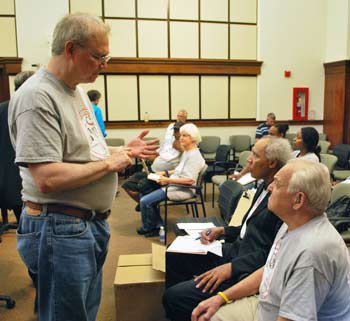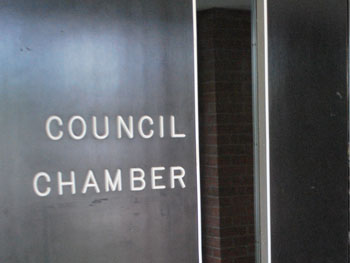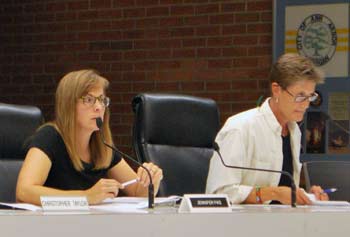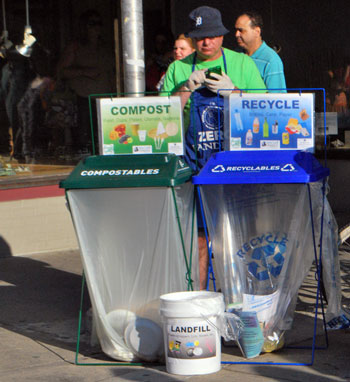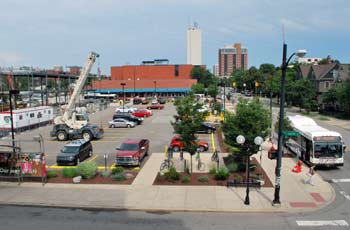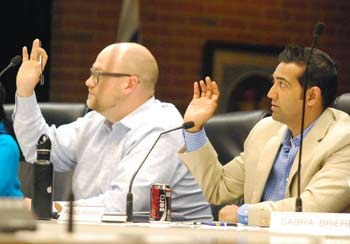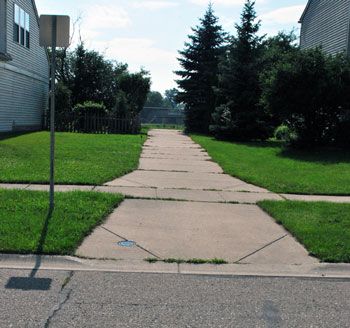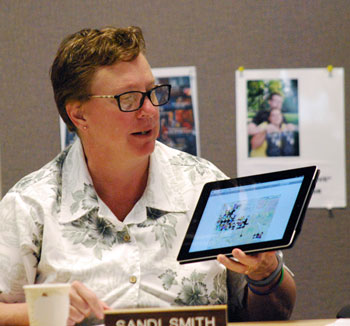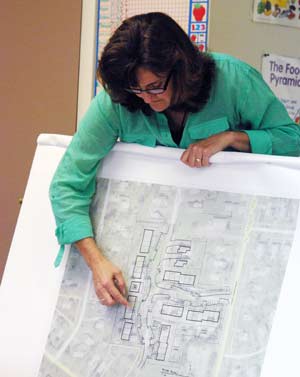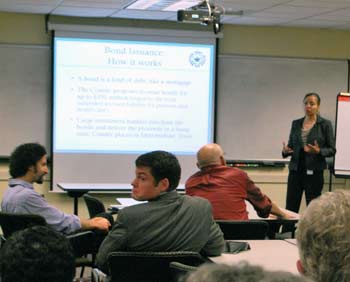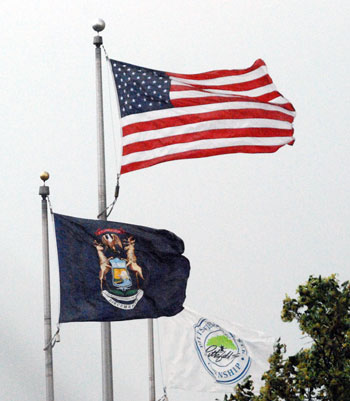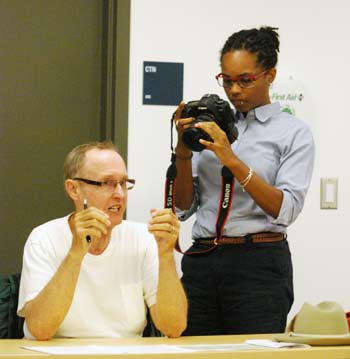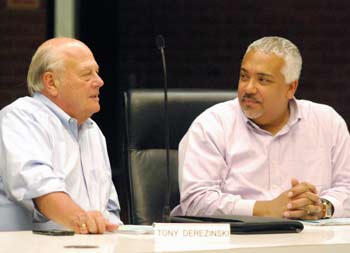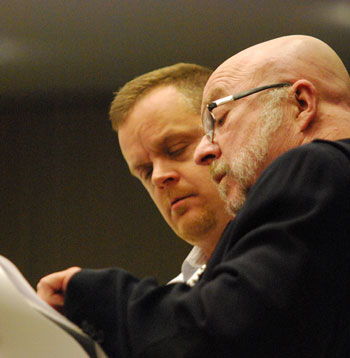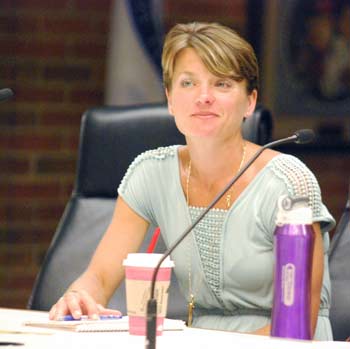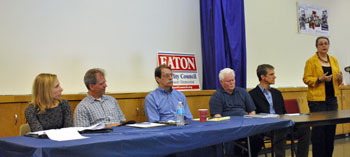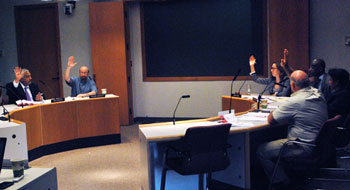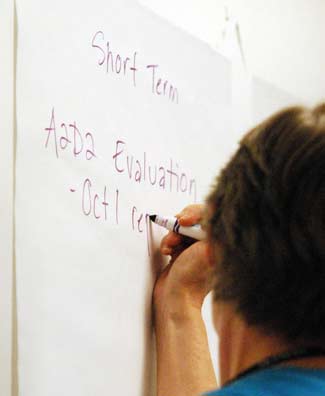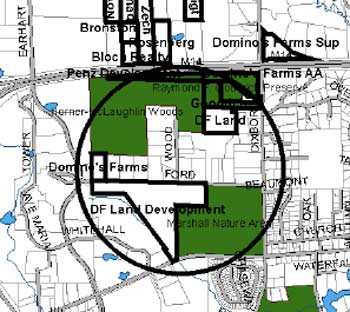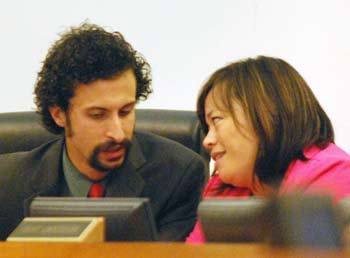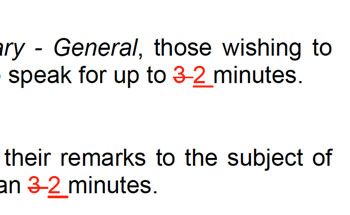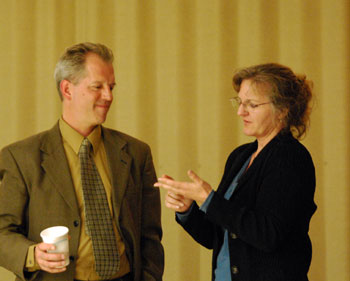Skatepark Rolls; Council Bails on Talk Time
Ann Arbor city council meeting (July 15, 2013): By recent standards, the council’s roughly three-hour meeting was relatively brief.
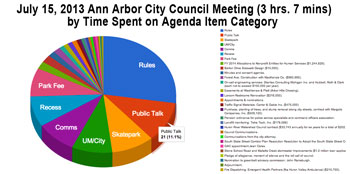
Of the Ann Arbor city council’s roughly 3-hour meeting, about a quarter of the time was taken up by deliberations on changes to the council’s rules (dark blue wedge), some of which would have affected public speaking time. Total public speaking time at the meeting (red wedge) was about 21 minutes, or 11% of the meeting. (Chart by The Chronicle based on time stamps of live updates filed from the meeting.)
About a quarter of that time was spent in deliberations on changes to the council’s own rules. That included a proposal to reduce the length of public speaking turns from three minutes to two minutes. After voting 10-1 – over the lone dissent of Margie Teall (Ward 4) – to eliminate the shortening of public speaking turns, the council discussed a number of the other proposed changes that had been recommended by the council’s rules committee.
Those changes include a shortening of councilmember speaking turns, adding public commentary to the council’s work sessions, moving nominations and appointments to a spot earlier on the agenda, and prohibiting the use of mobile devices for texting or phoning at the council table.
As councilmembers recognized that they would not be able to find their way to a clear consensus on the rules changes until they had longer deliberations, the council decided to postpone the item until its first meeting in September – which this year falls on Sept. 3.
So the council delayed launching itself off the lip of the legislative half-pipe to change its own internal rules. However, councilmembers took the advice of Stephen Kunselman (Ward 3) when they voted on the construction contract for a new skatepark: “Just go for it!” The unanimous vote on a $1,031,592 contract with Krull Construction came after some scrutiny led by Sally Petersen (Ward 2). Her questioning was based on the project’s additional cost, compared to its original budget.
The originally approved budget for the project was $800,000 – though the expectation was that it would cost about $1 million. The total budget now – including the construction contract, 10% contingency and $89,560 design contract – is $1,224,311, or $424,311 higher than the originally budgeted $800,000. Funds to pay for the skatepark include a $400,000 grant from the Washtenaw County parks & recreation commission, $300,000 from the Michigan Dept. of Natural Resources Trust Fund, and $100,00 raised by the Friends of the Ann Arbor Skatepark, which paid for the skatepark’s design. This particular effort by the Friends dates back to 2005.
An item added to the agenda the same day as the meeting led to considerable discussion about the relationship between the city and the University of Michigan. The council had failed on May 13 to approve a right-of-way occupancy for the university to install conduits under Tappan Street. An early departure from that meeting by Christopher Taylor (Ward 3) contributed in part to the council’s inability to achieve an eight-vote majority.
Whether an eight-vote majority is needed is the source of friction between the city and UM. Under the city charter, an eight-vote majority is required for the council to approve transactions involving an interest in land. The purpose of the conduits under Tappan Street is to connect a new emergency generator to the Lawyers Club buildings at 551 S. State St. The Lawyers Club and the generator are located on opposite sides of the street. The university’s view is that the agreement needs to convey an interest in land, something the city attorney’s office disagrees with. The council’s resolution approved on July 15 directs the city staff to renegotiate with UM.
The other item on the agenda receiving at least 15 minutes of discussion was one that granted a fee waiver for events held in Liberty Plaza. That action was prompted by public protests at previous council meetings about the possibility of charging a fee to the church that hosts Pizza in the Park – a homelessness outreach program that distributes food and other humanitarian aid.
The council handled a raft of other items, including three different contracts related to protecting the local environment. Two of the contracts include an educational component – one related to the city’s materials recovery facility (MRF), and the other to stormwater management. The third concerned monitoring the city’s now-closed landfill at Platt and Ellsworth.
The council also handled several other items related to stormwater management. Three of the items involved street reconstruction – on Stone School Road, Forest Avenue, and multiple streets in the Springwater subdivision. A fourth item approved by the council was a contract for tree planting, which will be paid for from the city’s stormwater fund.
Among other items, the council also approved the distribution of $1.2 million in human services funding to various nonprofits that do work under contract with the city.
In non-voting business, the council received an update from chief of police John Seto. He reported that through the first six months of the year, Part 1 crimes – the most serious types of offenses – are down 10% compared to last year in the city, while overall crime is down 7.5%. Seto also reported that the police department is analyzing the initial data collection from the electronic activity logs for officers.
During public commentary, the council heard from advocates for racial equity, who called for the council to take action in response to the not-guilty verdict in Florida’s Trayvon Martin shooting case. [Full Story]




